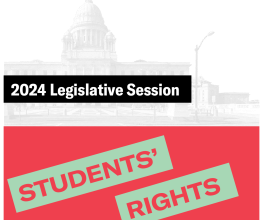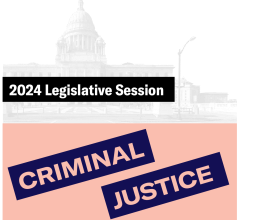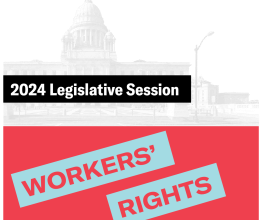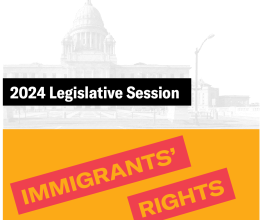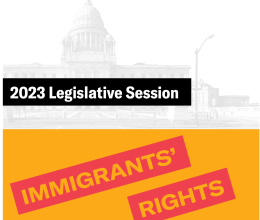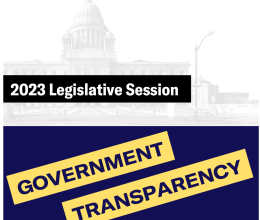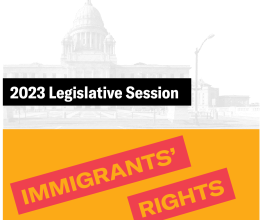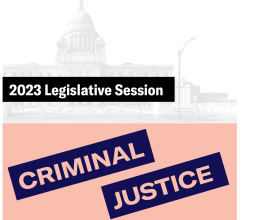The ACLU of RI today announced the favorable settlement of a federal civil rights complaint it filed last year against the Rhode Island Division of Motor Vehicles (DMV) for refusing to provide language interpreter services to clients who spoke any language other than English, Spanish or Portuguese.
Under a “compliance plan” filed with the Federal Motor Carrier Safety Administration this past week, the DMV has acknowledged its obligations under federal law to provide meaningful access to programs and services for all individuals with limited English proficiency (LEP), including translating drivers’ license exams into other languages. The resolution of the complaint is an important victory for new immigrants in the state who are still learning English but need to be able to drive.
The approved DMV plan notes that since the ACLU filed its complaint, the agency has translated the state driver’s license exam into 14 other languages. Under the plan, the DMV has agreed that when it “receives a future request to take the written driver’s license examination in a language not currently available,” it will translate the exam into the requester’s native language “as soon as practicable.” The DMV also agreed to “commence a review of the services it offers to determine … if any additional documents require translation” into other languages “and/or if interpretative services need to be provided.” The results of that review will be provided in the DMV’s FY 2018 compliance plan that must be submitted next year to the federal government.
The ACLU had filed the complaint after hearing last year from a recently arrived Italian immigrant with a green card, and who was married to an American citizen, but whom the DMV had barred from taking the written driver’s license exam in any language other than English, Spanish or Portuguese. Although he had attended ESL classes since arriving in the country, he spoke very limited English and avoided driving as much as possible, including to ESL classes, because he feared being stopped with only his Italian license. The complaint charged the DMV with violating a federal law, Title VI of the Civil Rights Act of 1964, which requires agencies receiving federal funding to provide meaningful and adequate services to LEP individuals.
Federal regulations implementing Title VI specifically cite driver’s license exams as a critical service subject to the law. However, at the time the ACLU filed its complaint, the DMV claimed it had no obligation to accommodate the LEP population beyond what it had already done for the Spanish and Portuguese population, and refused to offer any sort of accommodation through oral interpretation or translation services for other LEP persons.
In a 15-page complaint filed with the federal government last July, ACLU volunteer attorney Jennifer Doucleff noted that, according to Census data, there were more than 20,000 LEP persons who would not be able to obtain a driver’s license under the DMV’s policy. The ACLU complaint called on the federal government to step in and order the DMV to comply with Title VI and provide the ACLU’s complainant and others like him meaningful access to the agency’s services.
After the complaint was filed and federal officials intervened, the DMV translated the exam into Italian, and then into other languages as it received particular requests from new immigrants who spoke those languages. The compliance plan now formally codifies that practice.
ACLU of RI executive director Steven Brown said today: “We are pleased that the DMV has recognized its obligations to provide services to new immigrants who do not yet speak English fluently, and that the agency has been taking affirmative steps to address this issue. Access to the driver’s license exam and other DMV services is critical for Rhode Island residents trying to make a new life for themselves in our state and this country. The DMV’s compliance plan is an important step forward in treating LEP individuals fairly and welcoming them here.”
The DMV compliance plan can be found online here.
The ACLU’s federal complaint can be found here.

